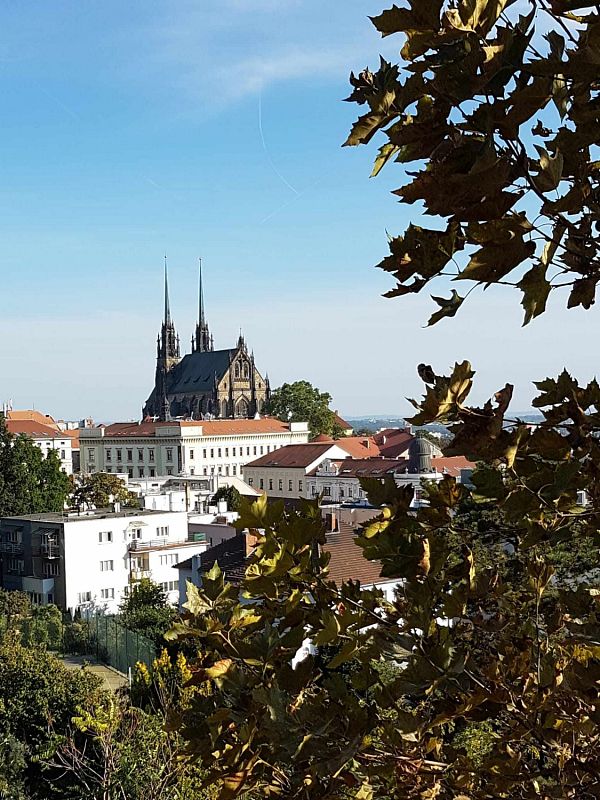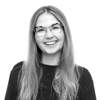 Kévin Bernal, originally from Southern France, currently resides in Paris. Having completed his PhD in toxicology in June 2023, he is now a postdoc student involved in the OBERON European project, where he is passionately researching the impact of endocrine disruptors on hepatic metabolism. During his time with the Barrande Fellowship Programme, Kévin spent two months in Brno.
Kévin Bernal, originally from Southern France, currently resides in Paris. Having completed his PhD in toxicology in June 2023, he is now a postdoc student involved in the OBERON European project, where he is passionately researching the impact of endocrine disruptors on hepatic metabolism. During his time with the Barrande Fellowship Programme, Kévin spent two months in Brno.
We had the exclusive opportunity to meet him at the Embassy of the Czech Republic in Paris to discuss his work and experiences in Czechia. Collaborating with colleagues from Brno, Kévin has been co-writing an article on the influence of polycyclic aromatic hydrocarbons on liver metabolism, which he aims to publish in an international journal. In June 2024, he returned to Brno to continue his postdoctoral research.
What did your Barrande Fellowship stay look like?
 It was my first time in Czechia, and I had only heard about Prague and knew little about the country. Still, Brno was an excellent choice for various reasons, and I had a chance and time to visit other Czech cities as well. The city of Brno is tranquil, and I liked it. It reminds me of Vienna a bit. I spent two months in the laboratory in Brno researching toxicology. The length was great for me, even if a three-month stay would also be pleasant, because I had been simultaneously working on my research in France. Generally, it was very flexible, and I could choose how much time I wanted to work. The city and my lab were international and cooperative. For comparison, out of 100 students in France, three are international, and the rest are French, but in Brno, I worked in a very international environment. Everybody made an effort to speak English, and people were super helpful.
It was my first time in Czechia, and I had only heard about Prague and knew little about the country. Still, Brno was an excellent choice for various reasons, and I had a chance and time to visit other Czech cities as well. The city of Brno is tranquil, and I liked it. It reminds me of Vienna a bit. I spent two months in the laboratory in Brno researching toxicology. The length was great for me, even if a three-month stay would also be pleasant, because I had been simultaneously working on my research in France. Generally, it was very flexible, and I could choose how much time I wanted to work. The city and my lab were international and cooperative. For comparison, out of 100 students in France, three are international, and the rest are French, but in Brno, I worked in a very international environment. Everybody made an effort to speak English, and people were super helpful.
How was the process of applying?
I was looking for an opportunity to develop my professional skills, and my supervisor advised me to apply for the Barrande Fellowship. I could apply for other projects in different locations, but my supervisor recommended the working groups and laboratory in Brno based on the good relations between France and Czechia. We are partners with various countries, including Czechia, within the OBERON European projects group, which is developing regulatory tests to identify endocrine disruptors. We have regular meetings, so I already knew my supervisor. To apply, I sent my CV, cover letter and research project description. After this initial selection stage, I had to prepare an oral presentation for the expert commission. The application process was simple.
Did you get along with other people and the environment?
 As mentioned, my colleagues and almost everyone in Brno spoke English fluently. I had colleagues from Czechia, South America, Germany, and Slovakia. Everybody was willing to help me when needed; people genuinely cared about each other, and the people I met while exploring the city were also very friendly. My colleagues and I had nights out and could visit the city and learn about the Czech and other cultures. I enjoyed walking around, and I found the architecture gorgeous and unique. I love being in nature and doing a lot of sports, and there are many good spots in Czechia to be active. I had a chance to visit Prague and Olomouc, which are both beautiful cities.
As mentioned, my colleagues and almost everyone in Brno spoke English fluently. I had colleagues from Czechia, South America, Germany, and Slovakia. Everybody was willing to help me when needed; people genuinely cared about each other, and the people I met while exploring the city were also very friendly. My colleagues and I had nights out and could visit the city and learn about the Czech and other cultures. I enjoyed walking around, and I found the architecture gorgeous and unique. I love being in nature and doing a lot of sports, and there are many good spots in Czechia to be active. I had a chance to visit Prague and Olomouc, which are both beautiful cities.
How was your living situation?
My lab helped me find accommodation, which was way less expensive than in Paris. I could easily cover all my expenses with the scholarship. Moreover, my flat was right next to my lab, so it was very convenient. I still did some analyzing work for my lab in France, which was also a source of income. The only thing that surprised me was that my grant came after I arrived and started doing my research in Czechia. Also, you need to have a Czech bank account. I didn´t have it, but my supervisor in Brno helped me. But all administrative tasks were much easier than in France!
Did you spot any differences between France and Czechia?
Even if the way of thinking is comparable to France, Czechs begin their workday sooner at around 8:00 (maybe because of the light) and finish sooner. I am used to starting at 9:00 or 9:30 and leaving work after 19:00, but I adapted quickly. The most challenging for me was adjusting to less daylight and the weather. Even if the time zone is the same, I was surprised that it is getting darker sooner than in France, and it is also colder. It could also be because I am from the Mediterranean part of France. Regarding languages, I don't speak Czech, but it is more difficult in France when you don't use the national language, so I didn't struggle. On my next journey to Brno, I will stay for 2,5 years, so that gives me enough time to learn Czech.
How did the Barrande Fellowship boost your (professional) life, and would you recommend it?
 The Barrande Fellowship gave me a chance to do more for my career development and gave me inspiration and new impulses to write articles. It was a shorter stay but flexible, so I could explore a new culture and get valuable tips. I made a lot of personal and professional connections. It also helped me to improve my English. Also, my knowledge now differs significantly from what I had been thinking about Czechia before coming to Brno. I recommend prolonging the stay to three months, because that gives you more space to work on your project or write articles. It helps to prepare everything beforehand, because the stay is short and passes quickly, so you can start working immediately after your arrival. Don´t hesitate - it can be scary to go to another country, but it is very enriching, especially when you need to explore new techniques for your research. It makes you grow and be more autonomous.
The Barrande Fellowship gave me a chance to do more for my career development and gave me inspiration and new impulses to write articles. It was a shorter stay but flexible, so I could explore a new culture and get valuable tips. I made a lot of personal and professional connections. It also helped me to improve my English. Also, my knowledge now differs significantly from what I had been thinking about Czechia before coming to Brno. I recommend prolonging the stay to three months, because that gives you more space to work on your project or write articles. It helps to prepare everything beforehand, because the stay is short and passes quickly, so you can start working immediately after your arrival. Don´t hesitate - it can be scary to go to another country, but it is very enriching, especially when you need to explore new techniques for your research. It makes you grow and be more autonomous.
The author of all photos in this article is Kévin Bernal.

